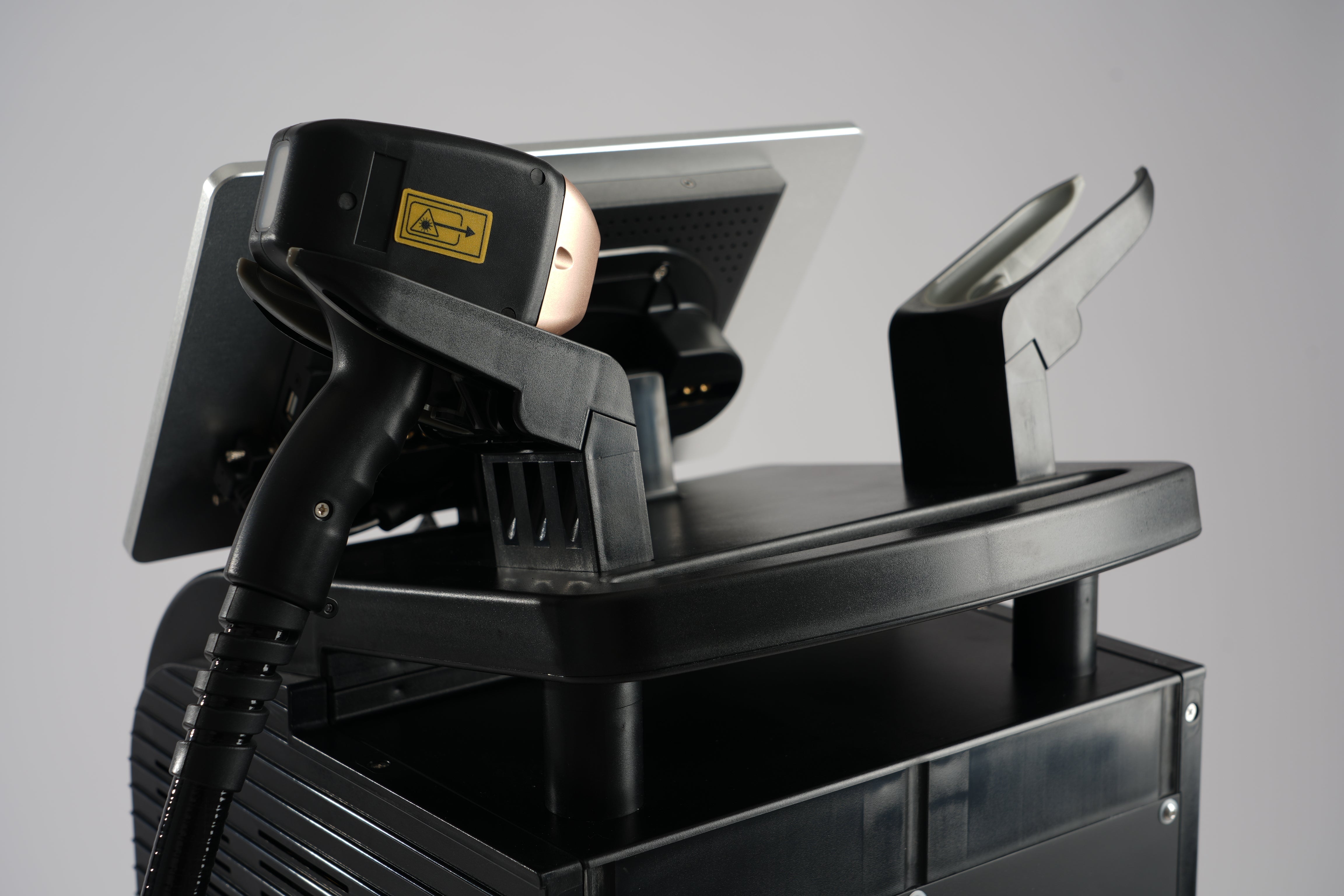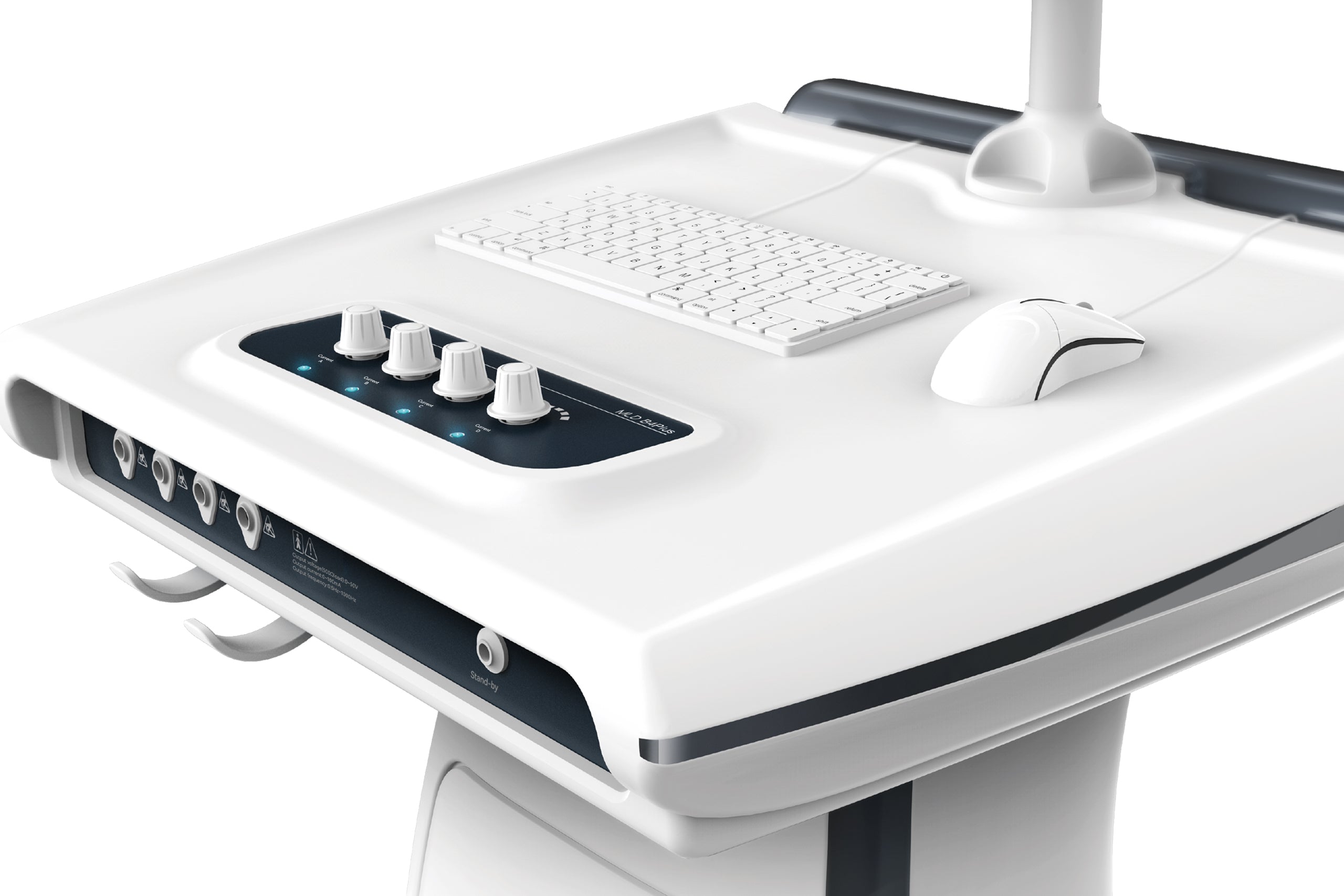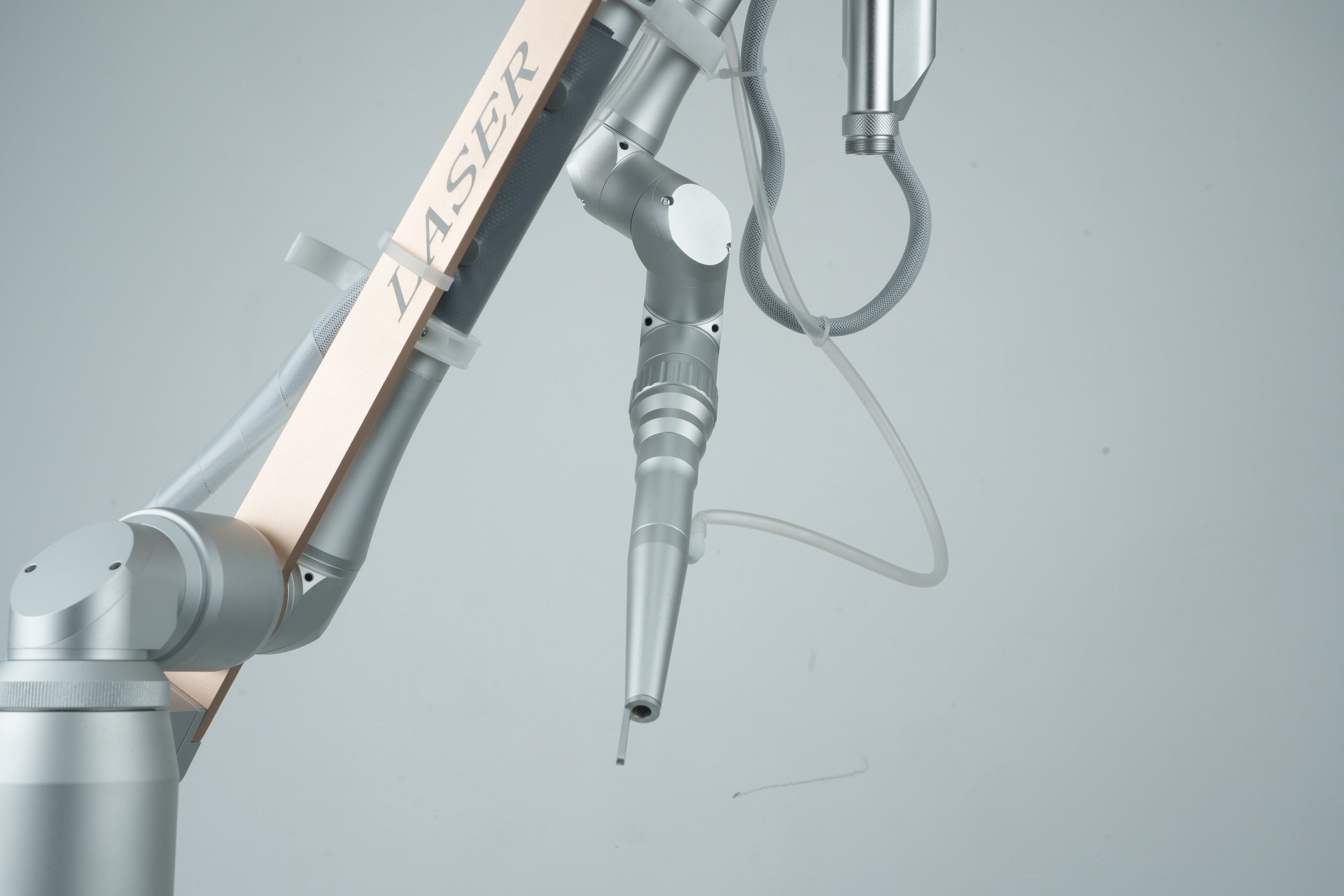Modern diode laser systems increasingly use a combination of three wavelengths to enhance hair removal results. By delivering 755 nm, 808 nm, and 1064 nm laser energy in a single device, these triple-wavelength platforms can target hairs at multiple depths and diameters simultaneously. In a triple-wavelength system, each laser wavelength plays a specific role:
- 755 nm (Alexandrite): Targets superficial, finer hairs (e.g. upper lip, eyebrows).
- 808 nm (Diode): Penetrates to medium-depth follicles for common areas (arms, legs, cheeks).
- 1064 nm (Nd:YAG): Reaches the deepest hair roots (e.g. scalp, underarms) and is safest for darker skin tones.
Additionally, each of these wavelengths has a different melanin absorption profile, enabling effective treatment across a spectrum of hair colors and skin tones. This blend of wavelengths means one machine can effectively treat a broad range of hair types and skin types in fewer sessions, with a “more is better” approach to laser efficacy.
Clinical evidence supports the advantages of triple-wavelength lasers. Research indicates that combining multiple laser wavelengths achieves greater hair reduction without a significant increase in side-effect risks. For example, a 2021 study using a 755/808/1064 nm diode platform reported “excellent” hair reduction in over 95% of treated areas for patients with skin types IV–V, with no unexpected adverse effects. Another trial observed high patient satisfaction and substantial hair clearance in both female and male patients across varied skin tones when using a triple-wavelength device. These outcomes underscore that the synergy of three wavelengths can produce superior follicle destruction while maintaining skin safety.
From a practical standpoint, triple-wavelength technology offers clinics a versatile and efficient solution. Because each wavelength targets a different part of the hair follicle and depth in the skin, a combined system can more uniformly damage hairs across various growth stages and body areas. As a result, fine hairs that might be missed by using only a long-wavelength laser can be eliminated by the Alexandrite component, while thick, deeply rooted hairs that might resist shorter wavelengths are effectively targeted by the Nd:YAG. This multi-pronged attack yields more thorough overall clearance of follicles. This often translates to faster treatment sessions and more consistent results for clients. Additionally, modern triple-wavelength devices integrate robust cooling systems to keep treatments comfortable and protect the epidermis, even when higher fluences are used across multiple wavelengths. In sum, blending Alexandrite, diode, and Nd:YAG wavelengths in one platform allows for comprehensive hair removal performance with minimal risk, improving efficacy for a wide range of patients.
References:
- Kirit E.P. et al. (2021). Triple-wavelength vs. single-wavelength laser hair removal in darker skin types. J. Cosmet. Dermatol., 20(4): 1117–1123
- Cosmoderma Editorial (2022). Triple wavelength diode laser for hair removal: A perspective. CosmoDerma, 2:15
- Lehavit A. et al. (2020). J. Drugs Dermatol., 19(5):515–518





Share:
Why Spot Size Matters: A Clinical Look at 12×24 mm Coverage